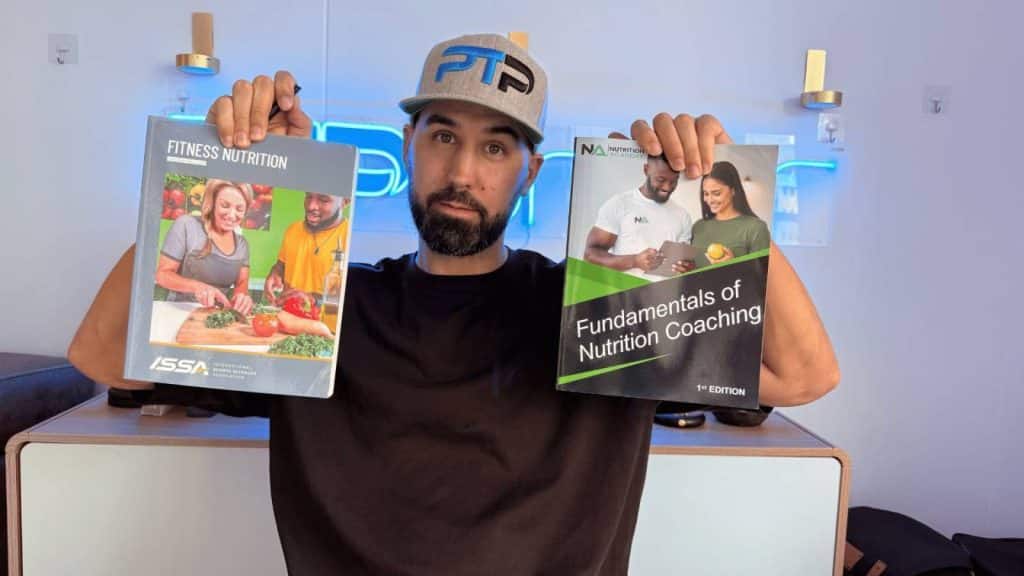
After completing both IPTA Certified Nutrition Specialist and ISSA Nutritionist certifications, I can recommend the IPTA CNS for most people. This Nutrition Academy course is less expensive, more detailed, and takes advantage of IPTA’s excellent online study system. Read the full review below to see a more detailed breakdown of IPTA vs ISSA Nutrition certifications.
A Quick Comparison: IPTA vs ISSA
| CPT | Features | Price |
|---|---|---|

|
|
View on IPTA Website |

|
|
View on ISSA Website |
If you’re passionate about helping others improve their health and nutrition, choosing the right nutrition certification can make all the difference. Two of the most talked-about options in the fitness industry are the Nutrition Academy Certified Nutrition Specialist (CNS) from the International Personal Trainer Academy (IPTA) and the ISSA Nutritionist from the International Sports Sciences Association.
While both programs teach you how to create effective nutrition plans, build healthy habits, and guide clients toward lasting results, there are key differences in depth, scientific focus, and career application. The Nutrition Academy CNS is known for its comprehensive, evidence-based curriculum that rivals graduate-level nutrition programs, while the ISSA Nutritionist is praised for its accessibility, flexibility, and strong industry recognition.
In this article, we’ll break down the two certifications side by side, covering:
- What each certification includes and who it’s best for
- The exam format, difficulty, and study materials
- Costs, recertification, and continuing education requirements
- Career opportunities and industry reputation
- Which credential offers the best overall value for your goals
By the end, you’ll know exactly which program — IPTA’s Nutrition Academy CNS or ISSA’s Nutritionist Certification — fits your career path and helps you stand out as a trusted expert in nutrition coaching.
Cut your Personal Trainer Certification study time in half with premium study materials for the programs in this article.
Use the code PTPSEPTEMBER to receive between 35% and 50% (depending on the program) off the Trainer Academy MVP Study System. Get the trial for any of their study systems here and check out my review for Trainer Academy here.
Make sure to take the quiz to determine which nutrition certification is the right fit.
By the end of this article, you’ll have a clear understanding of which certification fits your goals best.
What is the IPTA Certified Nutrition Specialist Certification?

The Nutrition Academy CNS program offered by IPTA is a certification designed to provide fitness professionals with a deep, evidence-based foundation in nutrition and coaching skills.
Some key features:
- It is 100% online, self-paced.
- It relies on a 700+ page textbook covering nutrient metabolism, digestion, hydration, special diets, behavior-change psychology, and practical coaching application.
- It goes beyond surface-level nutrition knowledge – intended for those who want more than a quick weekend certificate.
- Time to complete is estimated at 3 months (part-time) depending on pace.
- It’s affordable when compared to graduate-level nutrition credentials.
In short, this program is a legit nutrition certification with substantial depth, particularly suited for trainers who want serious nutrition coaching capabilities.
Sometimes, IPTA runs a buy one get one free (BOGO) promotion, where enrolling in the IPTA CPT also includes the Nutrition Academy CNS program at no extra cost. The IPTA CPT certification also stands out because it focuses on the practical skills needed to succeed as a trainer. With training and nutrition, you can build a complete set of tools to help clients with both those key needs. This leads to more income for you and better results for your clients. Definitely take advantage of this, if the BOGO deal is still available.
At the very least, I suggest testing out their free trial, so you can explore the study materials and see what they offer at no cost.
What is the ISSA Nutritionist Certification?
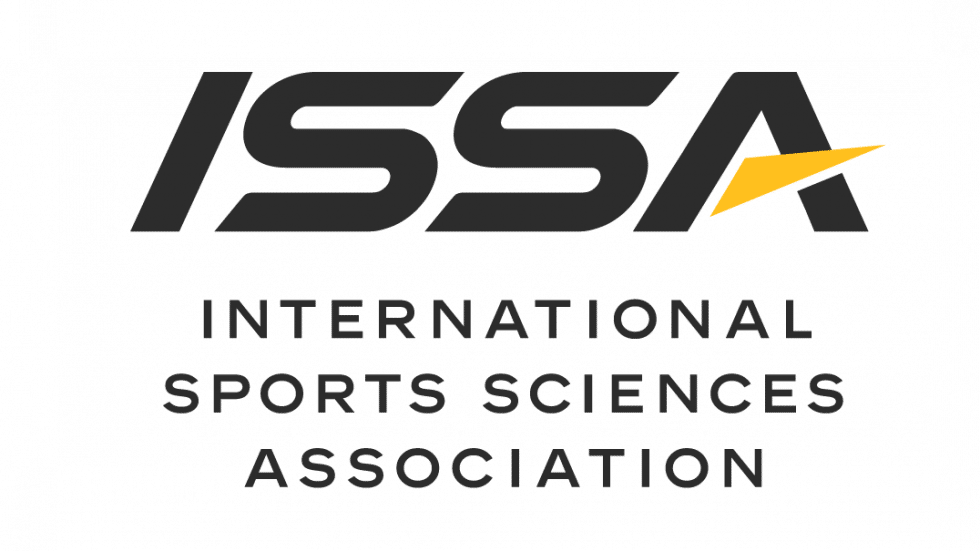
The ISSA Nutritionist certification is offered by ISSA and is geared to fitness professionals who want to offer nutrition guidance alongside training. According to available reviews:
Exclusive PTP Nutrition Offers |
||
|---|---|---|
Best Overall Cert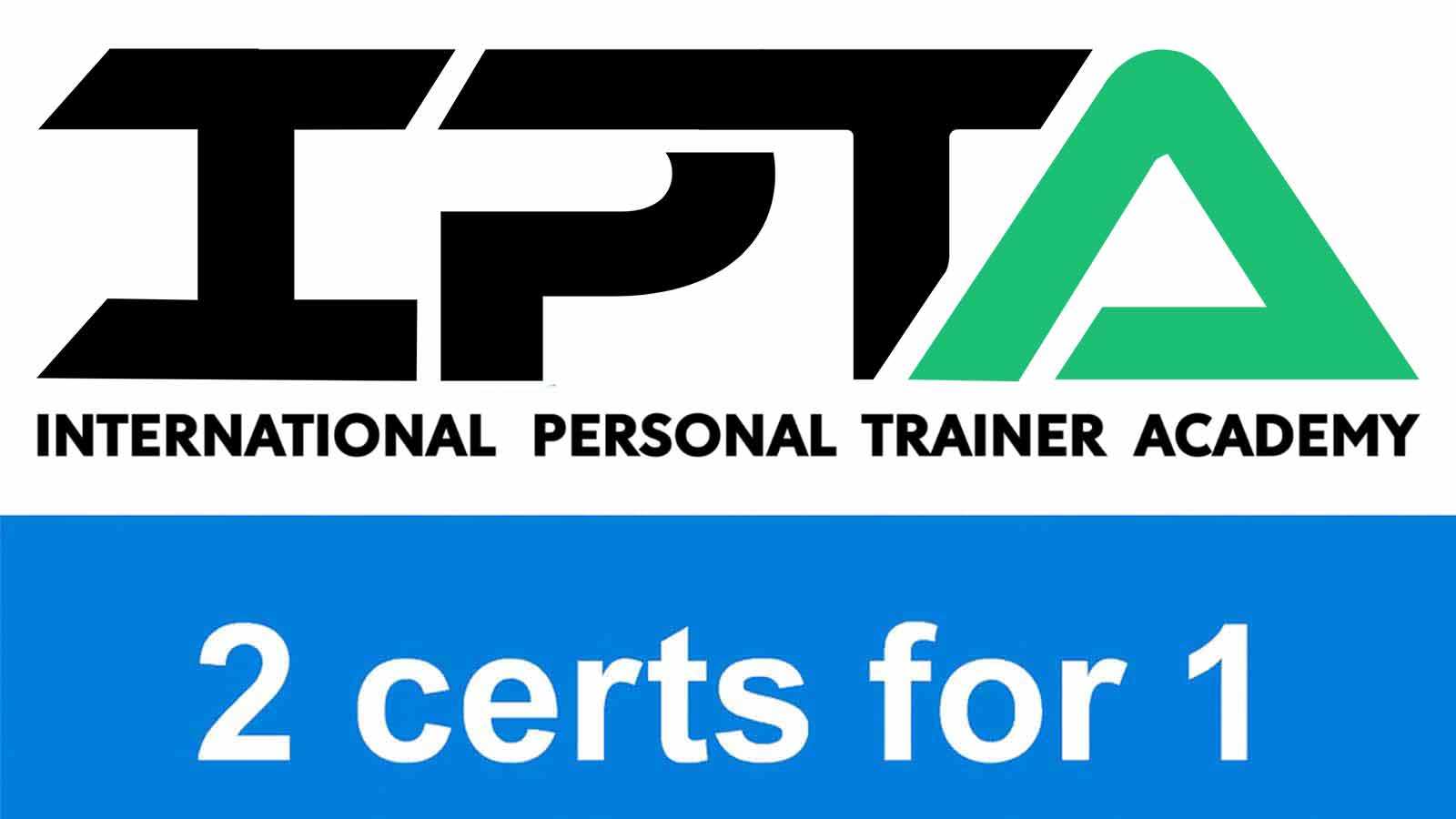 | Most Popular Cert | Best Study Materials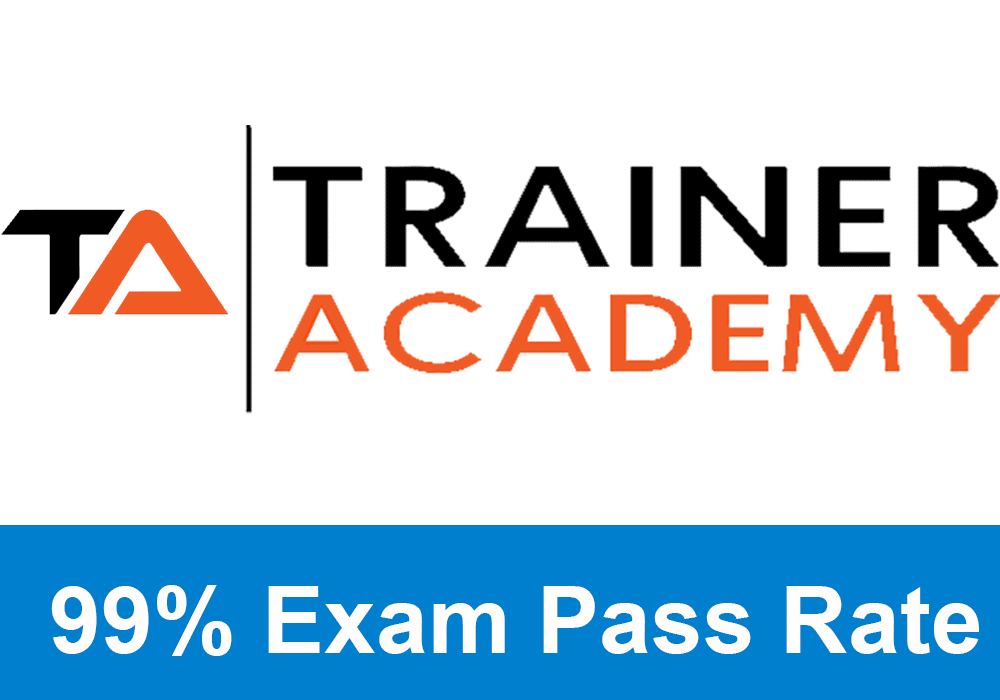 |
A Great Option | A Good Option | Best Cert for you? 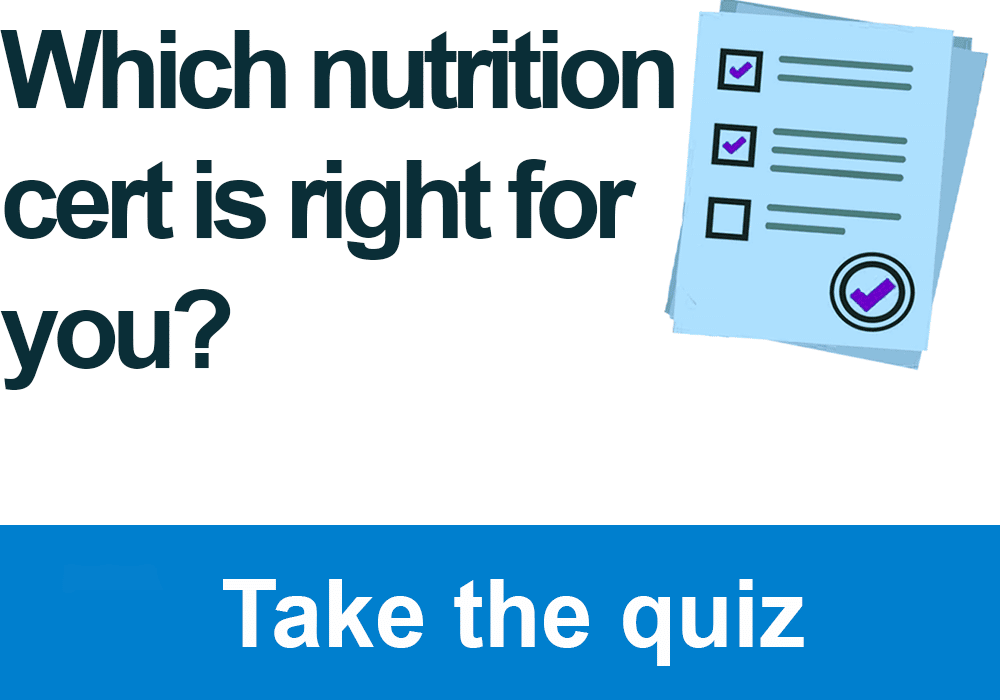 |
- The course covers macronutrients & micronutrients, lifestyle change strategies, client assessments, label reading, trending diets & myths, supplement basics, and business aspects of nutrition coaching.
- ISSA is a well-known brand in the fitness world (since 1988) with global recognition.
- The study package includes: digital textbook, practice exams/section quizzes, education bootcamp, client forms, online student forum, online/home study exam.
- The exam is online, open-book in some versions, and allows unlimited or multiple attempts (depending on package) with a relatively high pass rate.
Thus, the ISSA Nutritionist is a credible nutrition credential in the fitness coaching space, with strong brand recognition and a fitness-industry orientation.
IPTA and ISSA Prerequisites
Here’s how the two compare in terms of what you must do before or to enrol:
Nutrition Academy CNS (IPTA):
- Designed as a nutrition certification for trainers or health professionals; while not explicitly listing an advanced degree prerequisite, the program is more advanced in depth.
- Self-paced online format allows you to start without attending physical courses.
- It is ideal for: personal trainers who want to add legitimate nutrition expertise, health coaches who need a more evidence-based foundation, fitness professionals looking for a credential that stands out above entry-level certifications.”
ISSA Nutritionist:
- Generally in the fitness space; only a high school diploma (or equivalent) is required for many fitness nutrition certifications (though check ISSA’s current prerequisites).
- Must hold current CPR/AED certification if you are also going to train clients (common in fitness certifications).
- Online self-study format, so you need to be motivated.
Summary:
If you are just starting out and want to add a nutrition credential, the ISSA Nutritionist is relatively accessible. The Nutrition Academy CNS (IPTA), while still online and self-paced, is more advanced and may expect a higher level of self-study or previous foundational knowledge.
IPTA and ISSA Pros and Cons

Let’s break down strengths and limitations of each, side by side.
Cost and Value Comparison
Nutrition Academy CNS (IPTA):
The Certified Nutrition Coach from IPTA is less expensive than ISSA and offers a lot for the price tag.
You get a free textbook with 700+ pages of information with the most recent exercise science findings on nutrition. You also receive one free recertification, free exam retakes, SurePassAI, IPTA’s excellent gamified study system, an audio guide, helpful mnemonics, and more.
Pros:
- Strong value for the depth of content.
- Entry price at $399.
- Because of its depth, it may differentiate you from “basic” nutrition coach credentials.
Cons:
- Deeper content means more study time required.
- If your goal is “basic” nutrition advice, this might be more than you need.
ISSA Nutritionist:
The ISSA Nutritionist costs $629, which is more expensive than IPTA, but you can bundle the course with ISSA’s other certifications to save money. On the plus, side, if you’re already an ISSA CPT, you can get 20 CEU credits which can help renew your other certification. ISSA also gives you video lessons as part of the study course and livr Q&A sessions to help you study.
Pros:
- Good value, particularly for trainers wanting to add nutrition expertise.
- Strong brand recognition may help with marketing and employment.
- Online and self-paced, so flexibility is good.
Cons:
- As with many fitness-industry nutrition certs, may not be as rigorous as clinical nutrition credentials.
- Costs vary and bundling may affect actual value.
Study Materials & Learning Experience
Nutrition Academy CNS (IPTA):
Nutrition Academy uses IPTA’s superb study system, which can be tailored to your preferred length of study. If you want to complete the course in one month, you can specify that, and the course adapts. Conversely, you can also take longer (3 or 6 months if you want).
You get other features like magic mnemonics to help you learn, an audio guide, and a flashcard system.
Pros:
- Very thorough textbook and structured online program.
- Built-in real-world coaching skills (client communication, behavior change).
- Because it’s self-paced, you can fit it around your schedule.
Cons:
- Being self-paced, you’ll need strong discipline (although the study system does help a great deal).
- If you lack prior nutrition fundamentals, you may find it dense.
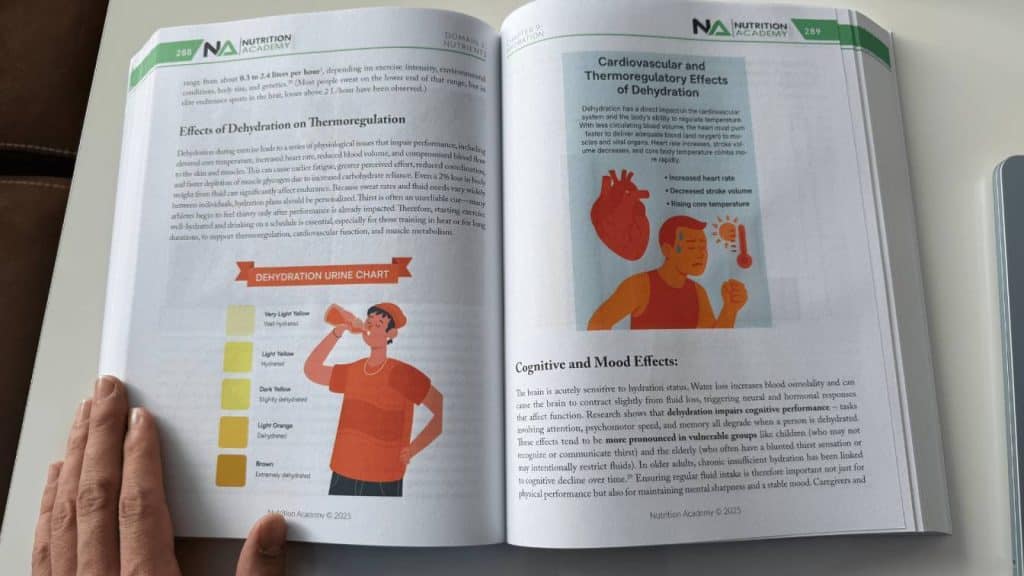
ISSA Nutritionist:
ISSA uses a tried and true online study platform with quizzes and an online forum to help answer any questions you have. The online videos help synthesize the chapter content, and you take short chapter quizzes at the end of each section. It’s a familiar, but effective way to learn the material.
Pros:
- Solid mix of textbook, quizzes, client forms, and practical tools.
- Recognized format for fitness professionals, so study materials likely aligned with what trainers expect.
Cons:
- The study materials are more traditional and may lack highly advanced interactive features.
- Being online and self-paced still means you must manage your own time.
Exam Structure and Difficulty
Nutrition Academy CNS (IPTA):
The IPTA Certified Nutrition Specialist final exam is 100 questions in length. You have to earn 70% or higher to pass. If you fail, you can retake the exam for free.
Pros:
- This is one of the most comprehensive nutrition certifications on the market.
- Because of its depth, passing indicates a serious level of nutrition knowledge.
- You get unlimited attempts to pass the exam.
Cons:
- The exam and content may be more challenging compared to more entry-level nutrition certs.
- Depth may mean more time required to study.
ISSA Nutritionist:
The ISSA Nutritionist final is 110 questions. You have to earn 75% or higher to pass.
Pros:
- Accredited by NBFE in some respects (per review) which lends credibility.
- Exam format is manageable with an open-book version.
- Good for trainers wanting to quickly add nutrition credential.
Cons:
- Because it is less “deep” than advanced nutrition programs, it may not carry the same academic weight in certain settings.
- Some of the ISSA online learning videos need to be updated.
Career Support & Guarantees
Nutrition Academy CNS (IPTA):
Pros:
- Because of the depth and applied coaching focus, this credential could support coaches who want to build a specialized nutrition offering, not just “add a credential”.
- Good for fitness professionals who want to raise their profile in nutrition.
- The BOGO deal (which includes CPT) has a job guarantee as part of the package.
Cons:
- Not all employers may know IPTA, as the organization hasn’t been around as long as ISSA.
ISSA Nutritionist:
Pros:
- Strong brand recognition and global reach of ISSA can help with marketability and client trust.
- Because it’s more widely known among fitness professionals, easier to integrate with existing training services.
Cons:
- Because the credential is more general, you may face more competition and may need to differentiate yourself further for higher-end clientele.
- If you aim to move into clinical or advanced nutrition consulting, this credential may have limitations.
Bottom Line and Recommendation
Both certifications have unique strengths and serve different needs, depending on your goals.
- If you are a fitness professional who primarily wants to add nutrition coaching to your services in a relatively efficient way, the ISSA Nutritionist is a very solid choice. Its brand recognition, value, and alignment with fitness industry needs make it practical.
- However, if you are a trainer, health coach, or aspiring nutrition practitioner who wants a more advanced nutrition credential, deeper knowledge, and the ability to stand out, the Nutrition Academy CNS (IPTA) is likely the better investment. It may require more study time and discipline, but the reward is a more robust credential.
My recommendation:
- For growth-oriented professionals: If you’re ready to commit to deeper learning and want your nutrition credential to be a major differentiator, choose Nutrition Academy CNS via IPTA.
- ISSA is also a good option, especially if you’re already certified with the CPT and want to earn CEU credits.
Ultimately, both can help you serve clients better and expand your offerings. The best choice is the one aligned with your current capacity (time, budget, study discipline) and your long-term business/ career goals.

 Have a question?
Have a question? 
Tyler Read
PTPioneer Editorial Integrity
All content published on PTPioneer is checked and reviewed extensively by our staff of experienced personal trainers, nutrition coaches, and other Fitness Experts. This is to make sure that the content you are reading is fact-checked for accuracy, contains up-to-date information, and is relevant. We only add trustworthy citations that you can find at the bottom of each article. You can read more about our editorial integrity here.